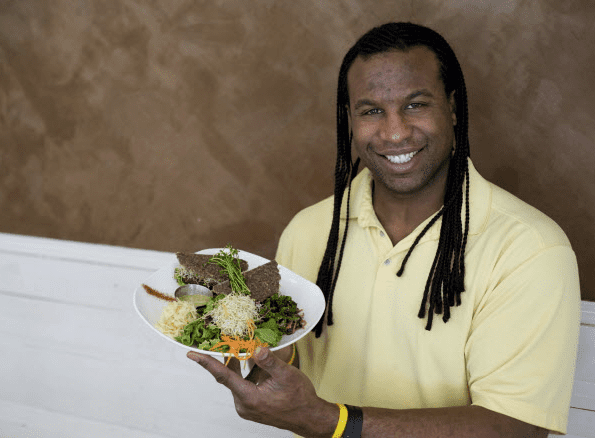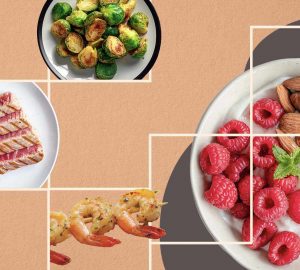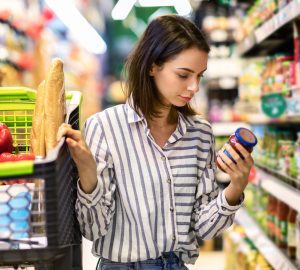Unlike the brand of shoes you prefer, or your favorite color, choosing to eliminate meat from the diet is a lifestyle that many individuals and athletes choose to make for reasons other than what’s hot, new, or popular. Because it is a lifestyle, it requires commitment and knowledge to make the diet work for personal health and performance goals.
All athletes must understand the importance of consuming a balanced, wholesome diet and there is often a lot of concern regarding how a high performance athlete (or a weekend warrior) can achieve this leading a vegan lifestyle. With so much research connecting diet to health, a plant-strong diet is heavily acclaimed for its many health, performance-promoting, and disease-preventing benefits.
Former Edmonton Oiler heavyweight Georges Laraque is one of those athletes who made the switch to living a vegan lifestyle. Many athletes today are choosing a plant-based diet, but he took it a step further and removed ALL animal products from his diet adopting a pure vegan plan.
As an athlete, you place a tremendous amount of intentional stress on your body in order to meet your fitness goals. Therefore, it is important to have an appropriately planned diet to support your athletic development. There are many apprehensions by athletes, coaches, and outsiders who question the athletic potential (or lack thereof) of vegetarian athletes. Within a restrictive diet, there will always be concerns for nutritional deficiencies, so it would appear that vegans are undoubtedly lacking key nutrients by not eating animal protein.
For Georges, the change to living a vegan lifestyle began not out of a health related benefit but as an animal rights issue. After watching the movie “Earthlings” which documents humanities use of animals as pets, food, clothing and for scientific research, a light went on for him and he decided at that time to never touch another animal product again.
“Prior to watching that film, I used to eat a cow a day,” says Laraque. “I ate a ton of meat. I did the Atkin’s diet because I played in the NHL”.
As a crushing force in the NHL, George was dependent on eating meat to keep his weight and strength up to be able to battle with the league’s best. It was just prior to his last year in the league when he was playing in Montreal that he saw the film and decided to make the lifestyle switch.
“I’m a very intense person,” he says. “When I decide to do something, I go all the way. “
George’s first thoughts, however, were similar to most peoples regarding how making a switch to veganism would affect their physique and strength. He thought he would loose all his muscle mass and strength and that he would be sick all the time. But he felt that making the switch was necessary, as he could no longer support the industries that were abusing animals.
Georges went about educating himself and also hiring a dietician to work with him to build a new diet plan that would show him what he could eat to retain his athleticism.
“They took me to the grocery store and introduced me to foods I had never heard of before,” he says. “ Things like kale, foods to introduce iron and calcium into my diet.”
He also went to the Heart Institute and did tests before and after his switch to see if the myth of athletes not being able to lead a vegan lifestyle were true.
“Before I started my diet change, I went in for physical testing,” he says. “I had asthma and high blood pressure and when I went back again four months later, the symptoms were gone. My strength and cardio were also much stronger. At that time I was sold.”
Because of his size, people would always question how he could possibly lead that lifestyle. He became a strong ambassador of veganism doing public speaking and narrating the French version of the Earthlings documentary.
“When I started talking about it, people saw an elephant talking to them about veganism not a guy who looked like they could levitate and they took notice,” he says. “It really created a strong trend in Montreal.”
If you are choosing to avoid or limit your intake of animal protein, it’s important to prioritize the most ideal sources of plant-strong protein to help support your individual health and fitness needs. Be mindful that every time you eliminate a food (or food group) from the diet, it’s in your best interest to seek an alternative food to replace the nutrients that you eliminating.
George’s Dinner Table
“I eat quinoa every day. Vegan quinoa pasta is awesome. When I eat pasta, it’s always quinoa. When it’s hot out and I don’t feel like cooking, I like a kale salad with avocado, mushrooms and all types of vegetables. When you mix in flax seed and goji berries, it makes it a complete meal. But my favorite meal is chili. When I mix in the beans and quinoa, it makes it really thick and tasty. When my non-vegan friends come over I mix some tofu in there and they don’t even notice. They love it.”









